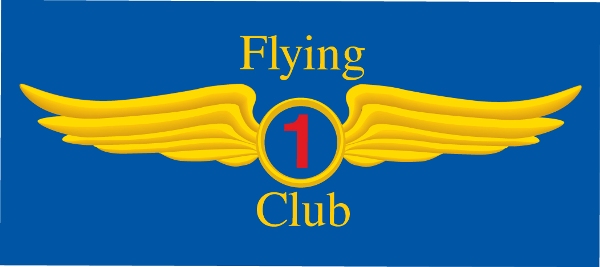
|
|---|
| Our Organization |
|
Home Events & Meetings Members & their Aircraft Join or Renew Fly Our Airplanes Volunteer Sign-up Sheet Contact Us |
| Gallery |
|
Gallery |
| Getting Started |
|
How to Get Started Sharpen Your Dream Become a Flying Member Instructors & Demo Flights |
| Flying in Northern VA |
|
Northern VA Airfields Airfields with Restaurants Poker Runs The Ambassador Program Video: Club 1 PPGs Video: Club 1 Trike PPGs |
| Weather |
|
USAirnet Wunderground Windy Virginia Weather Stations Historical Wind Speeds |
| Flight Planning |
|
SkyVector iFlightPlanner AirNav (airports) NOTAMs |
| Resources |
|
Instructors Stories Past Newsletters Bylaws and Budget Other Clubs Other Resources Liability Departed Members |
|
This website is supported by a gift in honor of Ed Lynch Site maintained by Flying |
Liability
Landowner Liability
- Airport owners' shield law. In 2012, Virginia passed a law that shields airport owners from liability for injuries sustained by people (such as pilots) who use their property for recreational aviation. This provision is now section 5.1-7.3 of the Code of Virginia. Note that it applies only to airports that are registered with the FAA and the Virginia Department of Aviation, in effect those that appear on the Sectional charts. It does not apply to unregistered airports, such as the Lenn Brothers' farm field.
- Landowners' limited liability. For fields other than airports, the long-standing Virginia recreational use statute probably shields the landowner from liability for recreational aviation use of their property. The details are in this legal opinion written by a Virginia lawyer, hang glider pilot, and landowner. As an extra protection for landowners, they may want you to specifically waive your rights to sue using a waiver like this Release of liability to landowners.
Pilot Liability when flying an aircraft you own
- Insurance.
You are, of course, liable for any injuries you cause to people or property. With cars or general aviation, you would buy a
liability insurance policy to cover that risk. Unfortunately, good liability insurance is not available for our kind of flying.
The insurance through the U.S. Ultralight Association (USUA) and the O2 Insurance Agency covers only:
- $1,000 medical payments to any one person
- $100,000 bodily injury to any one person
- $250,000 property damage
- $1,000,000 combined coverage for any one incident
- NO coverage for your passenger
Insurance through the EAA is slightly better, if you can get it, but still only $50,000 for a passenger. However:
- Your liability for passengers is limited by the obviously hazardous nature of aviation. Writes
Joseph Jonathan Brophy,
a personal injury lawyer in White Plains, NY:
“Flying in ultralight airplanes is considered an ultrahazardous activity, like parachuting or scuba diving. People who engage in those activities and are injured or killed have a very hard time successfully suing operators for injuries or death that may result. The legal doctrine that applies is called assumption of the risk. In a nutshell, you know it's dangerous when you choose to do it, so you can't sue for the risks inherent in the activity. Operators often have people who use their services sign liability waivers. You should speak to a local lawyer to find out what kind of language is appropriate in your state and have passengers sign a waiver before they go up in your ultralight. It won't protect you completely, but it will add some protection. The only thing that will protect you completely is to stay home in your recliner and watch TV.”
This sample Passenger Waiver of Liability has been passed down through the Club. It's in Word format. Edit it for your own use.
- Incorporating will not shield you. At least one book on recreational flying recommends incorporating yourself as a way to
shield yourself from liability. In the opinion of Mark Westerfield,
a general-practice lawyer from Alexandria, VA, that ploy will probably not succeed.
“Incorporating probably won't solve the problem you are concerned with. A corporation (or other legal entity) works well to protect the principals from a contract claim, because the corporation is the contracting party, and it works well to protect the shareholders and principals from torts (including negligence) committed by employees. However, if you are directly involved with any aspect of the operation -- and by this I mean not just flying but managing, directing, training, supervising, inspecting, hiring, etc. -- then you can be sued directly for your actions and the corporation will not shield you from liabilty.
“There are two options I can suggest other than a liabilty waiver for ultrahazardous activity and insurance. One is to transfer every asset to your wife in advance, although that has its own risks. The other is to transfer everything to a trust. Then, you control the trust in much the same way as you now control the property itself, but if you were sued, you would not own anything because it would all be in the name of the trust. Please realize this is simply the outline of an idea and needs to be worked out in detail with a lawyer and is not a 'do it yourself' operation.”
Pilot Liability when flying an aircraft you don't own
If you are flying an aircraft owned by Flying Club 1, you must purchase Non-owned Aircraft Insurance, sometimes called “renter's insurance”. This will defend you if someone sues you saying that you injured them while operating the aircraft. It will also pay if their defense fails and you lose in court.